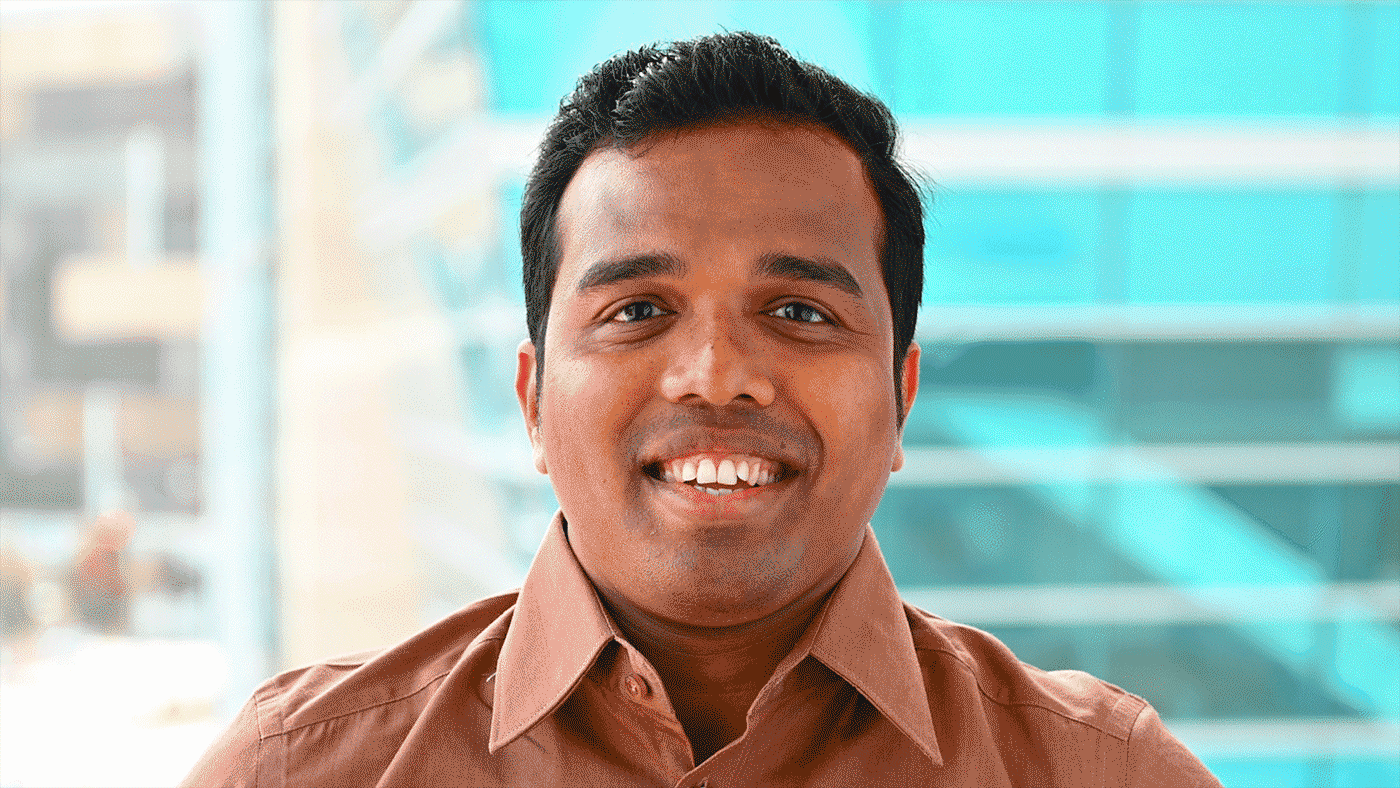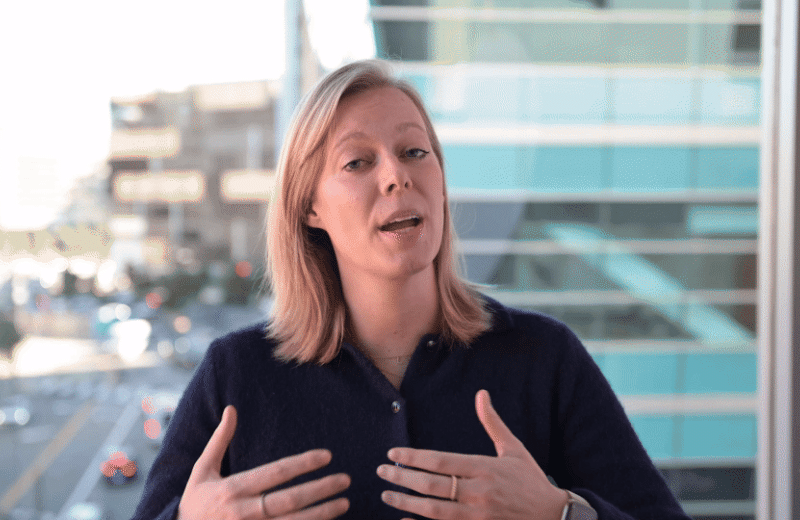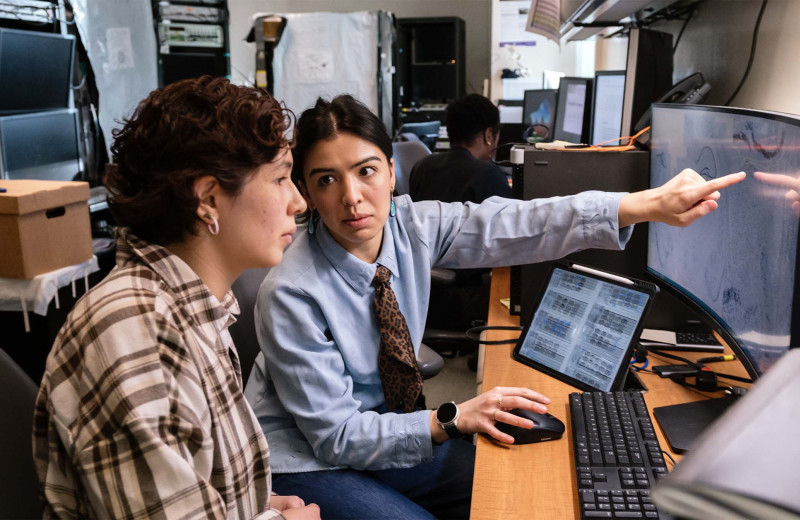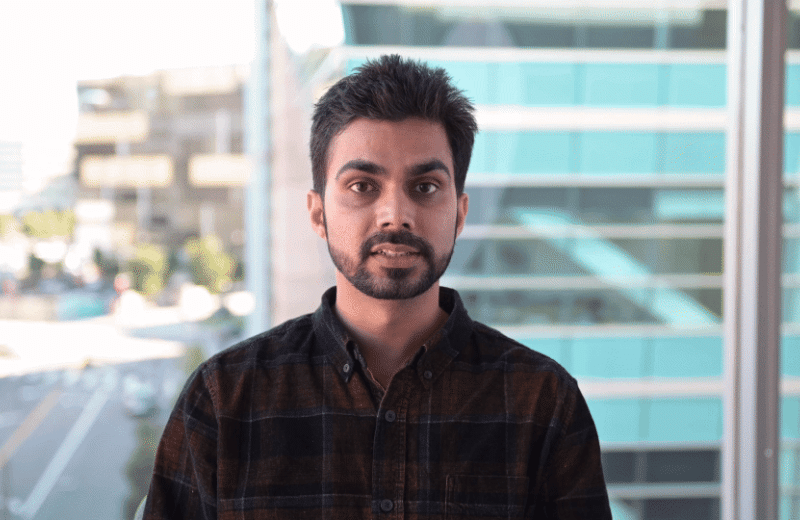Gladstone NOW: The Campaign Join Us on the Journey✕

Mir Khalid explains his work on SARS-CoV-2, his long love of science, and how he spends his free time.
Born and raised in Bangladesh, Mir Khalid (he/him) is a scientist in Melanie Ott’s lab at Gladstone Institutes. He completed his bachelors and master’s in genetic engineering and biotechnology at the University of Dhaka, Bangladesh. He completed a master's in infection and immunity at Erasmus University in Rotterdam, Netherlands. He performed his PhD research in the Ott lab studying molecular virology, and received his degree from Erasmus University.
What brought you to Gladstone?
My supervisor, Professor Tokameh Mahmoudi in the Netherlands, did her postdoctoral research at Gladstone. She strongly recommended I join Gladstone. So, I interviewed with Melanie Ott and she invited me to work with her while I was completing my PhD.
What do you like about Gladstone?
The progressive and supportive environment and people. Gladstone provides a supportive environment where great minds work together to do science and cure diseases. The people here are very talented, helpful, and collaborative. Gladstone provides exposure to many opportunities and career paths, preparing you professionally. I feel Gladstone has this mentality that any problem can be solved if we work together in a supportive environment.
Were you interested in science as a child?
Yes, I was very curious about science. My parents also drove my interest in science even more by calling me a “little scientist.” When I was 10 years old, I read a science book (written in the Bangla language) describing all the different areas of science. I was surprised to learn how big the universe is, and how many different species are on earth. I would often go to the local library to read science books.
I was very good at science subjects—always scoring well. Although my favorite subject was mathematics, I did extremely well in biology. My science teachers Shamsul Haque Khan, Nitish, and Akter Ali were very fond of me. They encouraged me to solve science problems by not memorizing the answers but using whatever information I got from the questions.
At home, if any electronics were old or broken, I’d open them up to see if I could fix them. Most of the time I’d fail, but that didn’t stop me. I’ve had this mentality from very early on to fix problems. I found science is the best way to do this and get answers to most questions.
Why did you decide to go to graduate school?
My dream was to become a scientist. During my undergraduate studies, I was interested in understanding infectious diseases from a molecular biology point of view. Graduate training gives you the insight to approach a problem from a scientific perspective and hopefully solve it. To me, this training was necessary even though it’s a long, stressful journey.
Can you describe your current research project?
My current research focuses on a protein of SARS-CoV-2, called Open Reading Frame 8 (ORF8). This protein is unique in that it can cause inflammation, help the virus hide from the host defense system, and get secreted out of the cell, but surprisingly, in many SARS-CoV2 viruses isolated from patients, this protein is absent or dysfunctional. Very early in the pandemic, with the Krogan lab, we showed that this protein targets one of the defense mechanisms of host cells (humans). Now, we are looking at the function of this protein in virus replication (life cycle). So, we are looking at this protein function from both perspectives—host and virus. It’s a tough protein to work with, but we are close to solving one of its mysteries.
What or who influenced your decision to work in science?
My parents and family are the most supportive people in my life, who influenced me to work in science even though they had very little exposure to science themselves.
In my childhood, I would ask so many questions, most of them were nonsense, and my parents would struggle to answer. But I found science was the best way to answer most of my inquiries—because it makes sense and the answers were also connected to logic. The curiosity to find not just an answer but the right answer was also a big part of my motivation towards science.
What do you do when you are not working?
Computer gaming, sports like soccer and karate, reading, acting and improv, fitness, and cooking.
I also do science blogging about viruses in the Bangla language. A big part of my activity goes to social media, where I engage with Bangladeshi people. I answer questions about viruses and science. During the COVID-19 pandemic, I participated in discussions on social media and Youtube channels to spread the right information to the general public. I also appeared on a TV channel in Bangladesh to answer questions about the Omicron variant.
If you could learn to do anything, what would it be?
Learning piano and forging metal. I didn’t have any musical background when I grew up, but I started learning piano from a colleague, and I'm still trying to find more time to spend on this skill. Forging metal is something I became interested in after I learned about Damascus Steel, and I’m hoping in the future I’ll learn to forge metal.
What is your hidden or unique talent?
I reply to all scam/spam text messages. I make ridiculous claims to the scammers or ask for solutions for made-up lab problems. Most of them get confused. One scammer once asked me if I found my lost dog, so I sent them a picture of an opossum, saying please distribute that picture to all his friends. Another time, a scammer claimed she was from Greece. So I replied in Greek, “Stop trying to scam me.”
If you could meet any scientist from any point in time, who would it be and why?
It would be difficult to pinpoint any particular scientist from any time. I see scientists as brave detectives who solve mysteries of nature even though society at different times gave them a hard time. I’d love to chat with Charles Darwin and tell him about viral evolution. I think he would be very amazed by it. The theory of evolution by natural selection is one of the greatest explanations in biology. As a researcher in virology, we see how evolution drives virus diversity. Now, we predict and prepare for new strains or variants—thanks to our understanding of evolutionary science.
I’d also want to meet Marie Curie, who won two Nobel prizes (Physics and Chemistry). Her work in radiation biology was amazing and brave. During WWI, she made Petites Curies—a mobile X-ray vehicle to help doctors on the battlefields. I think her work shows people how different branches of science can be combined in medicine to save lives.
Want to Join the Team?
Our people are our most important asset. We offer a wide array of career opportunities both in our administrative offices and in our labs.
Explore CareersMeet Gladstone: Alisa Dietl
Meet Gladstone: Alisa Dietl
Alisa Dietl brings her international training and clinical perspective to Gladstone, where she works to engineer more effective cancer immunotherapies for solid tumors.
Graduate Students and Postdocs Profile Cancer Pelka LabVoices of Outstanding Mentorship
Voices of Outstanding Mentorship
Three recipients of Gladstone’s Outstanding Mentoring Award share their personal approaches to mentorship and reflect how this passion has shaped their own growth as leaders.
Profile Roan Lab Graduate Students and PostdocsMeet Gladstone: Shyam Jinagal
Meet Gladstone: Shyam Jinagal
Shyam Jinagal explores how genetics, aging, and regeneration shape the heart—and how those insights could one day restore heart function after injury.
Graduate Students and Postdocs Profile Cardiovascular Disease Srivastava Lab



